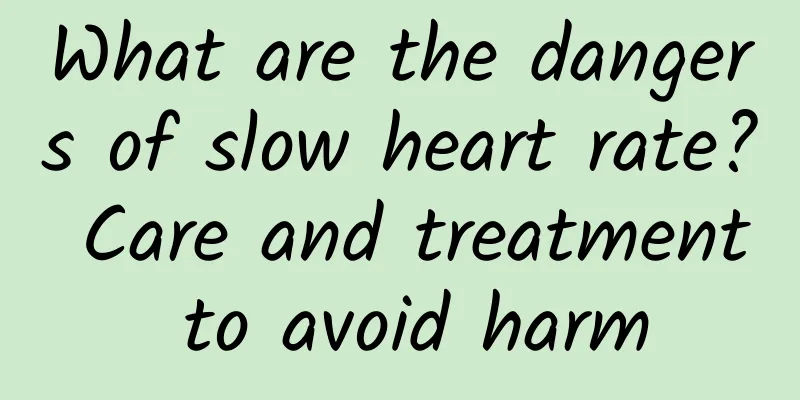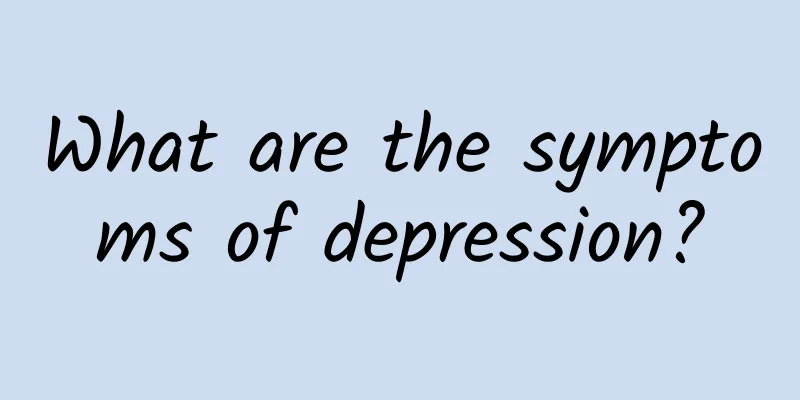What are the dangers of slow heart rate? Care and treatment to avoid harm

|
If the heart rate is slow and is not less than 50 beats per minute, there will be no serious symptoms. If it is less than 40 beats per minute, it is serious and may lead to symptoms such as fainting and angina pectoris. Patients should actively seek treatment, undergo comprehensive examinations, and pay attention to rest. 1. What are the dangers of a slow heart rate? If the heart rate is not lower than 50 beats per minute, there are generally no symptoms; if the heart rate is lower than 40 beats per minute, it may often cause symptoms such as angina pectoris, heart failure or syncope. 2. Treatment and care for bradycardia: Patients with symptomatic bradycardia, especially those that affect their quality of life, or whose heart stops beating for more than 3 seconds, or who have transient blackouts or syncope, should receive active treatment. In the event of an acute attack of bradycardia, in addition to treating the primary cause and stopping medications that can slow the heart rate, atropine or isoproterenol can be used to increase the heart rate. For those with a heart rate of 40 beats per minute or slower, drugs are not effective in raising the heart rate, especially in patients with recurrent syncope or presyncope, in whom a temporary pacemaker should be implanted. After actively correcting the reversible primary cause and excluding the influence of drugs, if the patient's bradycardia symptoms cannot be reversed, a pacemaker needs to be implanted. A pacemaker is the size of a matchbox and weighs between 25 and 50 grams. The pulse generator is implanted under the skin in the upper chest, and the pacing wire is delivered to the heart through the veins. The pacemaker stimulates the heart with a certain form of artificial pulse current, causing the heart to contract effectively, thereby increasing the heart rate, relieving or eliminating the patient's symptoms and saving lives. Therefore, people who often suffer from fatigue, heart discomfort, dizziness, transient blackouts or fainting should pay attention to counting their pulse when they are calm and when they have discomfort. If you are not a person who likes to exercise regularly, and your heart rate is always slow during the day, especially less than 50 beats per minute, or your pulse slows down significantly when discomfort symptoms appear, or there is a long period of cardiac arrest, you should pay attention and go to the arrhythmia clinic of the hospital's cardiology department for a detailed examination. |
<<: What is the cause of irregular heartbeat? Pay attention to arrhythmia
>>: How to treat heart failure? Etiology treatment is key
Recommend
How to regulate stomach problems?
People with bad stomachs must pay attention to sc...
What removes moisture?
If dampness is not eliminated, no matter how many...
Nursing of enteral nutrition
Enteral nutrition care is very important. If your...
What methods does Traditional Chinese Medicine use to treat eczema?
Traditional Chinese medicine has a very long hist...
How long does it take to walk after a heel fracture?
Heel bone fractures are very harmful to health an...
What are the effects and functions of Dahuo Luo Dan?
Chinese herbal prescriptions are a treasure of tr...
High ALT
Do you know what is going on when alanine aminotr...
Is chronic superficial gastritis easy to treat?
Is chronic superficial gastritis easy to cure? Th...
Tips for quick bleeding control
In daily life, if bleeding occurs due to an accid...
Chlamydia trachomatis positive and pregnant
If the pregnancy is positive for Chlamydia tracho...
What is the difference between edema face and fat face?
There is an essential difference between an edema...
How to treat mild gynecological inflammation
TCT mild inflammation is a professional term in m...
What is safflower? What are the benefits of safflower foot bath?
Many people know that there are many important bl...
What is the patella?
The patella is the kneecap we are familiar with. ...
What is the cause of the growth of buds on the clitoris?
The most common group of people who suffer from g...









